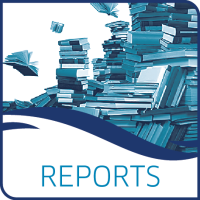Scottish Marine and Freshwater Science Vol 12 No 12
Interbreeding between escaped farmed Atlantic salmon and wild indigenous salmon (hybridisation) introduces genetic material from farmed stocks into wild populations (introgression) with resulting disruption of the adaptive genetic composition of individuals and populations. This can impact their fitness resulting in a significant negative pressure on the viability of wild populations. Recent advances in analytical and statistical techniques are able to differentiate between farmed salmon of Norwegian origin, native wild Scottish salmon and progeny resulting from interbreeding. By sampling a number of juvenile salmon from a particular location it also possible to estimate the proportion of foreign genetic material present in wild Scottish salmon populations and to identify whether this is due to recent or historical events. Monitoring the proportions of wild fish affected by hybridisation is routinely carried out in other countries, and can feed into management decision making. This is the first time a survey to examine the genetic status of populations has been conducted across the geographical extent of Scotland.
Data and Resources
- Scottish Marine and Freshwater Science Vol 12 No 12: Introgression site classificationscsv
Column headings
SiteNo – Site Number
Preview Download
Site – Site Name
...
| Field | Value |
|---|---|
| Publisher | |
| Modified | 2021-10-08 |
| Release Date | 2021-09-16 |
| Identifier | 0ce776cd-8c77-4067-8db5-b50b3f2b01bb |
| License | UK Open Government Licence (OGL) |
| Public Access Level | Public |


